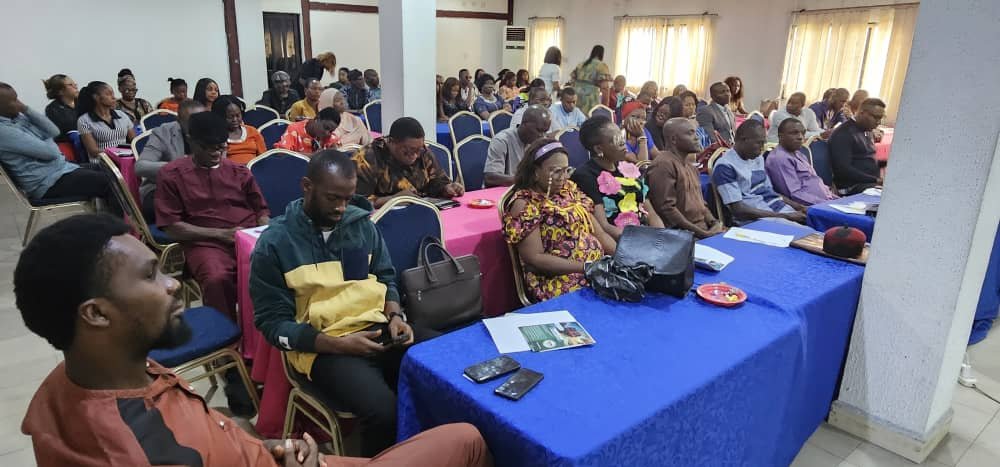Businesses and budding exporters have been told to embrace the African Continental Free Trade Agreement (Afcfta) because it is far beyond a continental trade agreement, but a regime of activities to bring about Africa’s economic renaissance.
The position was dropped in Port Harcourt on Thursday, May 15, 2025, by Nonye Ayeni, the Executive Director and Chief Executive Officer (ED/CEO) of the Nigerian Export Promotion Council (NEPC).
Speaking to prepare the minds of budding exporters in the south-south, the CEO said: “It is a blue print for Africa’s economic renaissance through the elimination of tariffs on 90% of goods, reduction of trade barriers, and facilitating the movement of capital and people.”
She explained that 90% of goods moving around the African continent from within the continent would not attract tariffs, meaning that their prices would remain almost the same from the country of origin to countries of consumption, except for transport costs and local conditions such as currency differentiations and local forces of demand and supply.
The CEO said the one-day workshop in Port Harcourt was thus designed by the NEPC for SMEs on ways to position and benefit from the AfCFTA.
The Executive Director also stated that intra- Africa trade would grow significantly overtime and that the presence of AfCFTA was aimed at creating a seamless and integrated African market to make the continent a more attractive destination for global investments.
The CEO revealed that in a bid to enhance Nigeria’s trading activities under Afcfta, the Council has signed a Memorandum of Understanding (Mou) with the National Bureau of Statistics (NBS) to facilitate data capturing of informal cross-border trade.
She called on all exporters to take advantage of the training and formalize their export businesses within the African market to help key into other laudable initiatives of the Council such as the Export Incentive, Export Market Access Programmes, Export Trade House Initiative (ETH), Domestic Export Warehouse (DEW) and their flagship “Export 35 Redefined.”
She said this is designed for the benefit of exporters in the non-oil export sector.
She emphasized the Council’s unwavering commitment to support export promotion at the sub-national level and as a catalyst in strengthening export for economic growth and job creation so as to increase Nigerians export competitiveness, increase Nigeria’s export volume/earnings, and contribute significantly to Nigerians economic growth.
Peter Njoku, Deputy Director, Market Access, NEPC, Abuja, mentioned the criteria for successful export in Nigeria, stating that for exporters to have full benefits of the Afcfta regime, they need to have met the requisite criteria.
“There are basic things we should do to say we are export-ready. It’s only companies that are export-ready that can go into AfCFTA or any other international or continental market for export.”
Njoku further revealed that the AfCFTA era is a market where people can trade on duty-free basis. “We have 90% duty fee on each product and this makes export more profitable.”
On his own, Ofon Udofia, the Executive Director, Institute of Export Operations and Management (IEOM), stated that Afcfta covers 53 African countries, Nigeria inclusive, and makes all countries sell under a single tariff, which is reduced by 90%. He said this was not so before, now due to the different trade blocs with different tariffs. “But with the signing and ratification of the Agreement, all counties in Africa are selling under a single tariff which makes our product competitive.”
Udofia also encouraged all African exporters to make use of the training for their products to achieve standard, be well packaged, be certified, and not to make other nations a dumping ground.
An elder, Dogala Sakpege, who is Rivers State chairman of the Nigerian Association of Small and Medium Enterprises (NASME), stated that AfCFTA would help the members of NASME to do business and bring in more hard currencies that would reflect in the economy of the state and country.
He further called on the government and banks to give the Association access to funding that would increase their production.
It would be recalled that in 2021 since Nigeria endorsed the ratification of AfCFTA, there has been the introduction of the Guided Trade Initiative (GTI) designed as a critical enabler for exporters and businesses, providing the support and practical guidance necessary for Small and Medium Enterprises (SMEs) and exporters to navigate the complexities of cross-border trade both within Africa and beyond.
Many have called for security in Africa through the upgrade of infrastructural facilities around Africa to boost internal trade.

